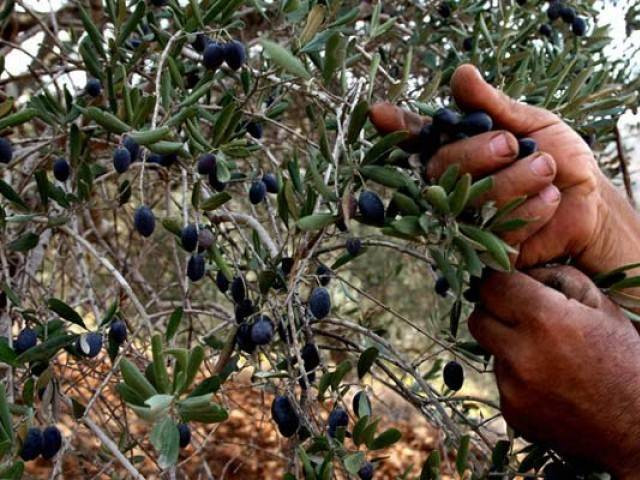Behind Hazara division’s olive boom
Success story in Abbottabad serves as an inspiration for farmers

Although Pakistan is not a major grower of olive oil, over the last two decades, the trend of cultivation of olive in some areas of Punjab, Azad Jammu and Kashmir (AJK), and KPK has led to a rapid growth in olive oil production. Hazara division is one of the best regions for olive plantations, where hundreds of farmers have been attracted and started grafting olives on a local breed named "Kaho" and within two to three years they have also started to yield, which has grown many folds after passing each year.
In the Hazara division, from district Haripur to Battagram, more than 1,000 hectares of area are dedicated to olive plants, and this area continues to grow annually. Sabir Sultan, a skilled farmer and olive cultivation specialist hailing from Abbottabad, shared a remarkable journey of transforming the agricultural landscape in the Hazara Division over the past 13 years.
His expertise in olive grafting has not only led to the flourishing of olive trees but has also resulted in a substantial increase in edible oil production. Talking to the Associated Press of Pakistan (APP), Sabir Sultan revealed that his deep-rooted passion for olives took shape during extensive travels to approximately 25 countries. Drawing inspiration from international experiences, he dedicated himself to revolutionising olive cultivation practices in his home region.
Read Body formed to check ‘bias’ in olive plants’ import
Sultan disclosed that the collaborative efforts of 52,000 successfully facilitated olive grafting on local-breed Kaho trees across various regions, with an additional 50,000 individual grafts. He said that the yield from 200 kilograms of olives amounts to an impressive 15 kilograms of high-quality edible oil, underscoring the economic viability of olive cultivation.
Acknowledging the support from Turkey, Sabir Sultan highlighted the installation of four cutting-edge olive oil extraction machines in KP, where one has been allocated for the Hazara division, which is now operational at the Abbottabad Potato Research Centre, showcasing the integration of modern technology into traditional farming practices. Additionally, a state-of-the-art machine from Italy has been installed at the Tea Research Centre in Shinkiari, further streamlining the olive oil extraction process.
During the past few years, the Hazara division has witnessed an olive boom, with hundreds of thousands of Kaho trees contributing to the region's economic and agricultural prosperity.
Sabir Sultan emphasised the growing interest among locals in olive cultivation and grafting, citing it as not only a source of edible oil but also an avenue for additional income through tea and pickles.
Actively involved in community outreach, Sabir Sultan conducts workshops on olive cultivation and grafting in the Hazara division and Punjab. His mission is to promote and expand olive cultivation, aiming for maximum coverage to ensure self-sufficiency in edible oil production.
Read Olive cultivation scheme on the cards
This dedication also aligns with contributing significantly to foreign exchange savings through reduced reliance on imported oils. Sabir Sultan's transformative efforts stand as a testament to the potential of sustainable agriculture and the positive impact it can have on local economies.
The olive cultivation success story in Abbottabad serves as an inspiration for farmers and agricultural enthusiasts, showcasing the possibilities when traditional knowledge meets modern innovation. Despite limited resources and technical support, especially in terms of olive oil extraction machinery in the Hazara division, oil production is increasing in the region. This trend also reflects the farmers' strong intent to actively participate in olive farming.
According to the Agriculture Department statistics available from 2019 regarding olive oil production in the Hazara division, over 100 farmers collectively produced only 90 KG of olive oil. However, in the following year, the production escalated to 600 KG. By the years 2022 and 2023, olive oil production had surpassed 2 metric tons, providing substantial financial benefits to the farmers.
This remarkable achievement also attracted many more farmers to engage in olive cultivation. The Agriculture Department and the National Tea and High-Value Crops Research Institute (NTHVCRI), Shinkiari, are playing a key role in the development of olive farming in the region. For the year 2024, under the olive cultivation and development program, NTHVCRI also offers a subsidised rate for high-quality olive saplings for landowners of Rs93 only. These saplings will be available on January 14, 2024, at the Shankiyari office.
Published in The Express Tribune, January 18th, 2024.


















COMMENTS
Comments are moderated and generally will be posted if they are on-topic and not abusive.
For more information, please see our Comments FAQ